يحاول ذهب - حر
Meet The Salamander
July/August 2017
|Dig Into History Magazine for Kids and Teens
Make the Match - These salamanders look just like the one on page 22—but only one is an exact match? Can you spot it?

Today, most people think of salamanders as lovable pets, but, for centuries, this gentle amphibian had a fiery reputation. The word “salamander” traces its roots to a Persian term that meant “fire within” or “lives in fire.” The fourth century B.C.E. Greek philosopher Aristotle was one of the first to claim that salamanders could live inside flames. He also said that they could extinguish a blaze just by walking across it. The first-century c.e. Roman writer Pliny the Elder tested this theory by throwing a salamander into a fire. The salamander died, but that did not kill the legend.
هذه القصة من طبعة July/August 2017 من Dig Into History Magazine for Kids and Teens.
اشترك في Magzter GOLD للوصول إلى آلاف القصص المتميزة المنسقة، وأكثر من 9000 مجلة وصحيفة.
هل أنت مشترك بالفعل؟ تسجيل الدخول
المزيد من القصص من Dig Into History Magazine for Kids and Teens

Dig Into History Magazine for Kids and Teens
Worshiping Heaven
For almost 500 years, emperors of the Ming and Qing dynasties offered sacrifices and prayers at the Temple of Heaven in Beijing.
3 mins
November/December 2016
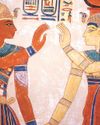
Dig Into History Magazine for Kids and Teens
Peace Reigns
The news spread throughout Egypt—a new pharaoh, Ramses III, now sat on the throne.
4 mins
September 2017
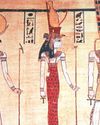
Dig Into History Magazine for Kids and Teens
Problems To The East
Ramses III, the second king of Egypt’s 20th Dynasty, is viewed as Egypt’s last truly great pharaoh.
3 mins
September 2017
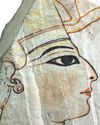
Dig Into History Magazine for Kids and Teens
The Successors
Following the death of Ramses III, eight pharaohs, all named Ramses, ruled Egypt.
1 mins
September 2017
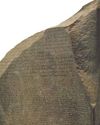
Dig Into History Magazine for Kids and Teens
Stone Code
Hundreds of ships, led by the French general Napoleon Bonaparte, sailed from France in May 1798 on a secret mission.
1 mins
September 2017

Dig Into History Magazine for Kids and Teens
Up & Away!
Eclipse observers often face unexpected difficulties, sometimes on their way to their chosen sites and sometimes at a site itself.
2 mins
January 2017

Dig Into History Magazine for Kids and Teens
Edison's Eclipse Adventure
Thomas Edison (1847–1931) is the best-known inventor in American history.
3 mins
January 2017
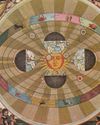
Dig Into History Magazine for Kids and Teens
Digging Up Copernicus
The scientist “who made the Earth a planet” is how the Harvard-Smithsonian astronomer Owen Gingerich refers to Nicolaus Copernicus (1473–1543). Copernicus’ path breaking book, On the Revolutions of the Heavenly Spheres,challenged the centuries-old belief that the Earth stood stationary at the center of the cosmos.
2 mins
January 2017
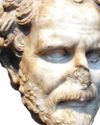
Dig Into History Magazine for Kids and Teens
Demosthenes & Cicero
Even today, more than 2,000 years after they lived, Demosthenes and Cicero are still considered two of history’s most outstanding orators.
4 mins
May/June 2017

Dig Into History Magazine for Kids and Teens
Confucius & Socrates
Some teachers are so inspirational that their influence lives on long after they die.
3 mins
May/June 2017
Translate
Change font size

